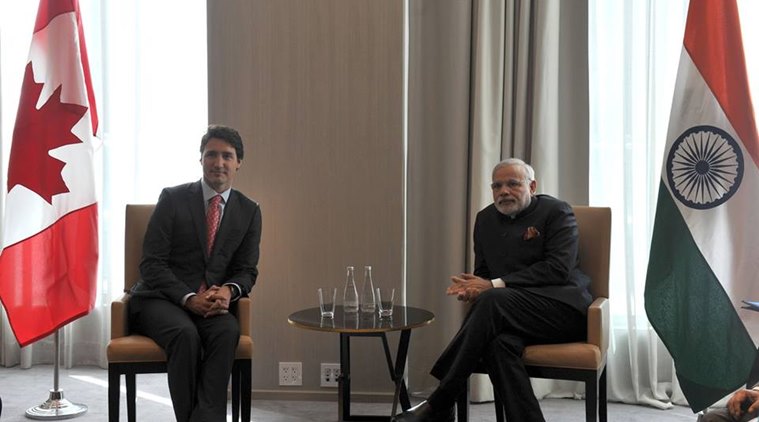Trudeau’s diplomatic mishap
February 23, 2018 | Expert Insights

Canadian Prime Minister Justin Trudeau has announced that his office has made categorical assurances to the government of India that he does not support Sikh separatists. Controversy erupted during his visit to India when news emerged that a formerly convicted Sikh separatist had been invited to dinner at the Canadian High Commission. The invitation has since been rescinded.
Background
Justin Trudeau is the current Prime Minister of Canada since 2015. He has been the Leader of the Liberal Party since 2013. Trudeau is the second-youngest Canadian Prime Minister, after Joe Clark. He is considered one of the most popular world leaders and has been praised for his inclusive and liberal policies in Canada.
The Khalistan movement is a Sikh nationalist movement, which seeks to create a separate country called in the Punjab region. The genesis of the movement can be traced back to pre-independent India. At the time, the region of Punjab had been primarily ruled by Sikhs. During the partition, most of the Sikh part of the Pakistani province of Punjab migrated to the Indian province. It was during 1965, during the India-Pakistan war, the Indian government ceded to these demands. The region primarily held by Sikhs became modern day Punjab and the rest of the region were split into Haryana and Himachal Pradesh.
Analysis
Canadian Prime Minister Justin Trudeau is currently on an official visit to India. He has held meetings with government officials, entrepreneurs and spent time with prominent personalities. He has also visited key locations of historic significance in India. His visit, however, has been marred with controversy as news emerged that Jaspal Atwal, a Khalistani separatist convicted in 1986 for trying to kill an Indian minister was not only seen with members of Trudeau’s entourage but was also invited for a dinner at the Canadian High Commission. Reports also noted that members within the Canadian government were sympathetic for the Sikh separatist movement.
Trudeau has been quick in responding to the criticism and has noted that his office did not support the Sikh separatist movement. A statement from the Canadian government read, “Prime Minister Trudeau met with the Chief Minister of Punjab, Mr. Amarinder Singh in Amritsar. The Prime Minister conveyed his support for a united India, stressing the desire to see positive collaboration on issues of mutual concern. The Prime Minister discussed his views on freedom of expression and the importance of dialogue to establish common ground and understanding. The two exchanged views on a range of issues, including youth employment and investment towards mutual prosperity. They also agreed on the importance of increasing participation of women in the economy.”
Trudeau also spoke to reporters in Delhi and noted that the invitation had been rescinded. "Obviously we take this situation extremely seriously," he said. "As soon as we found out we rescinded the invitation immediately." Singh, meanwhile, said on Twitter he received a "categorical assurance" from Trudeau that Canada "does not support any separatist movement". "His words are a big relief to all of us here in India," he wrote.
“I think there’s absolutely no question that there is an influence of separatist politics that in Canada has had quite a predominant role,” Dosanjh, the former premier of British Columbia, told the Hindustan Times last year. “They concentrated on Indian politics and India-related issues, about a Sikh homeland, the 1984 affair. Finally, they realized they have enough people and they can actually win nominations.”
Assessment
Our assessment is that the latest controversy indicates how important and delicate diplomacy is, when it comes to foreign affairs. The Sikh population in Canada plays a prominent role in Canadian politics and Trudeau has heavily courted the Sikh vote to win elections. He has in the past been photographed with Jaspal Atwal in more intimate gatherings in Canada. In India, Atwal is considered a convicted terrorist. There is growing concern in Delhi that the Canadian government could be supporting Sikh separatism, and this could be the reason why the government in power has kept a studied distance from the Canadian Prime Minister during his latest visit.








Comments